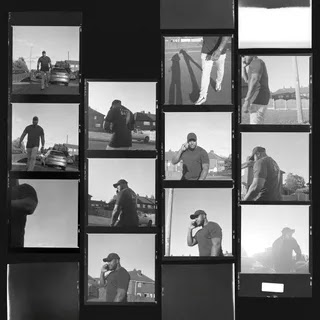Now two decades into his career, the Huddersfield native balances the brashness of bassline house with the swing of 2-step, demonstrating his own quiet mastery of UK garage’s many strands.
It doesn’t take much more than the slimmest crack of sunlight to breach England’s clouds each spring for the perennial revival of the sound of the summer to be pronounced. It's not the hum of lawnmowers, or the smatter of birdsong in the air. It's not even Drake. It is, of course, UK garage music. Without waver, it endures; and in its wake come the same debates. For every grizzled old raver pointing out (rightly enough) that garage actually never really went away, there’ll be a fresh upstart digging deep into Discogs lists and pulling out fistfuls of sweet, skippy, sticky (and Sticky) beats. DJ Q sits squarely, and humbly, between these extremes—plugging away.
Growing up in Huddersfield, a market town plonked roughly midway between Manchester, Leeds, and the bassline-house mecca of Sheffield, Q made his first production forays in the heady realms of speed garage and its rowdier, wompier cousin, bassline. A few years in, he switched tack and took on a slinky 2-step swing. He’s made tracks that have entered both canons. In one, there’s bassline chant-starter “You Wot!,” which sounds exactly as you might imagine from the title; in the other, the silky rumble and marimbas of “Brandy & Coke.” With TQD (a supergroup of sorts, alongside Flava D and Royal-T), he’s also helped catalyze a surging, self-sufficient jump-up bassline scene that leaves a trail of sweat and sore jaws across satellite towns and European festival tents alike. Now two decades into his career, on Est. 2003 DJ Q presents a survey not so much of his output to date—this is no retrospective—but of his own quiet mastery of UK garage’s many nebulous strands.
Most of the album—11 tight, spring-loaded cuts, three minutes and change apiece—was written during the months of COVID-19 lockdowns, when clubs were shut and DJs were left asking “Now what?” And while the resulting tracks aren’t defined by that lingering tension, it certainly seeps through on occasion: in the restrained 4x4 bounce of “It’s You” (which could barely be further from its rowdy mid-noughties bassline namesake), or in the distant, clanking keys and stretched, near-lethargic vocals of the Todd Edwards collab “Sweet Day.” Mostly, though, there’s little doubt about the staying power of the dancefloor. Tracks like “Speedy Gs” (with Finn) or the Shola Ama-assisted “I Can’t Stay” conjure memories of the club with exacting precision. The former is giddy with organ stabs and a rushing undertow of sub-bass and sirens, while the latter’s soulful curls cry out for a chorus of clubbers to belt them full-throated into the rafters.
The best moments come when Q offers a sideways glance; as in the final minute of opener “Pipe Dreams,” when the formerly warbling bassline ducks out and returns with a grating, gritty thump, or on the vocal gymnastics and doubled-up kicks of “All That I Could.” His ability to cross-pollinate styles—a dash of bassline squeal here, some hardcore wails there—with relatively little fanfare, and without ever sounding contrived, gives the whole thing a timeless quality. It sounds fun without sounding tired. It’s the same quality that, come next spring, will start the whole cycle off again. This time, with a few more DJ Q tunes in the canon to pick from.



0 comments:
Post a Comment